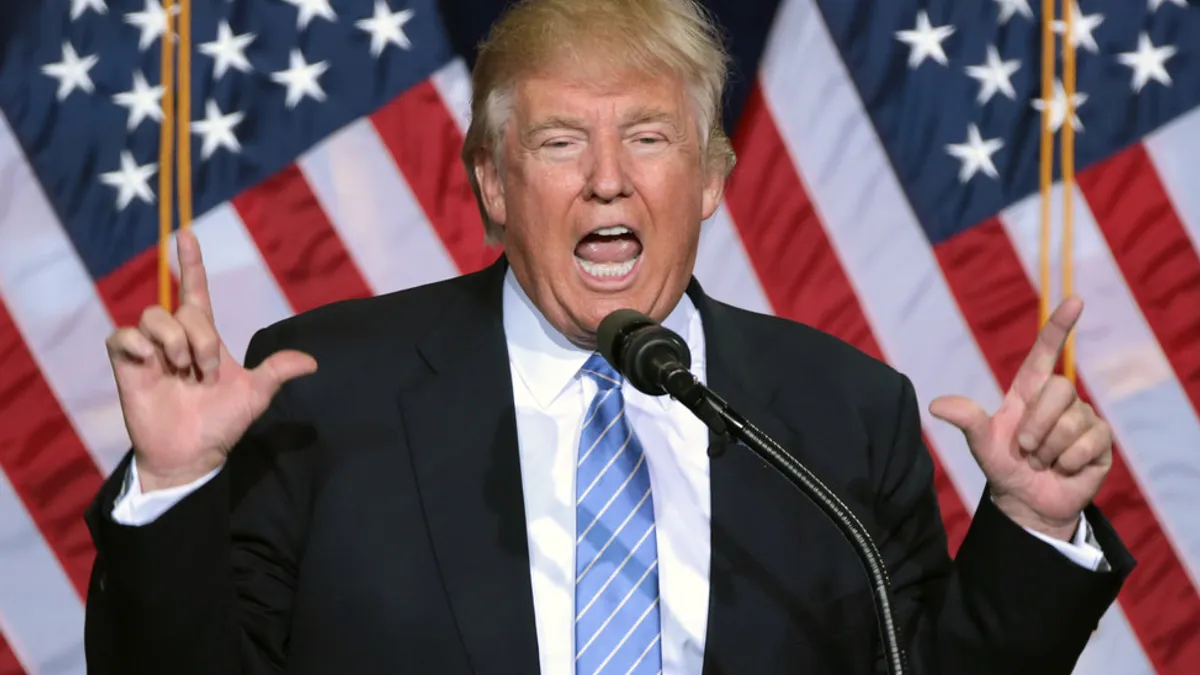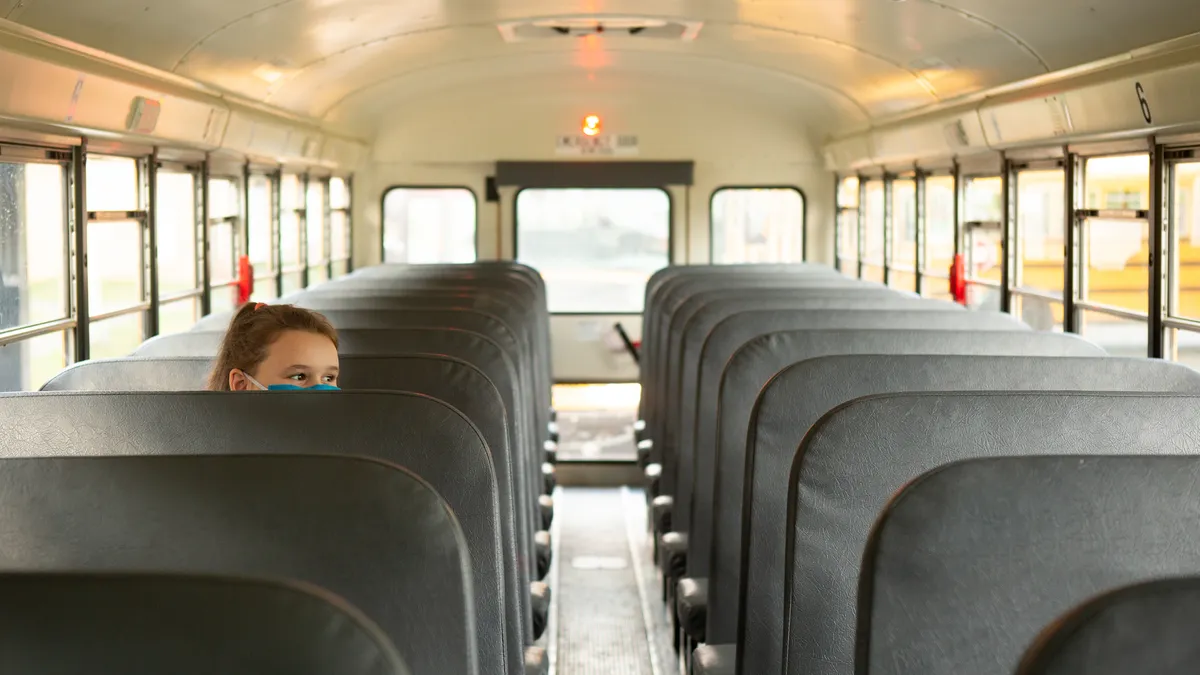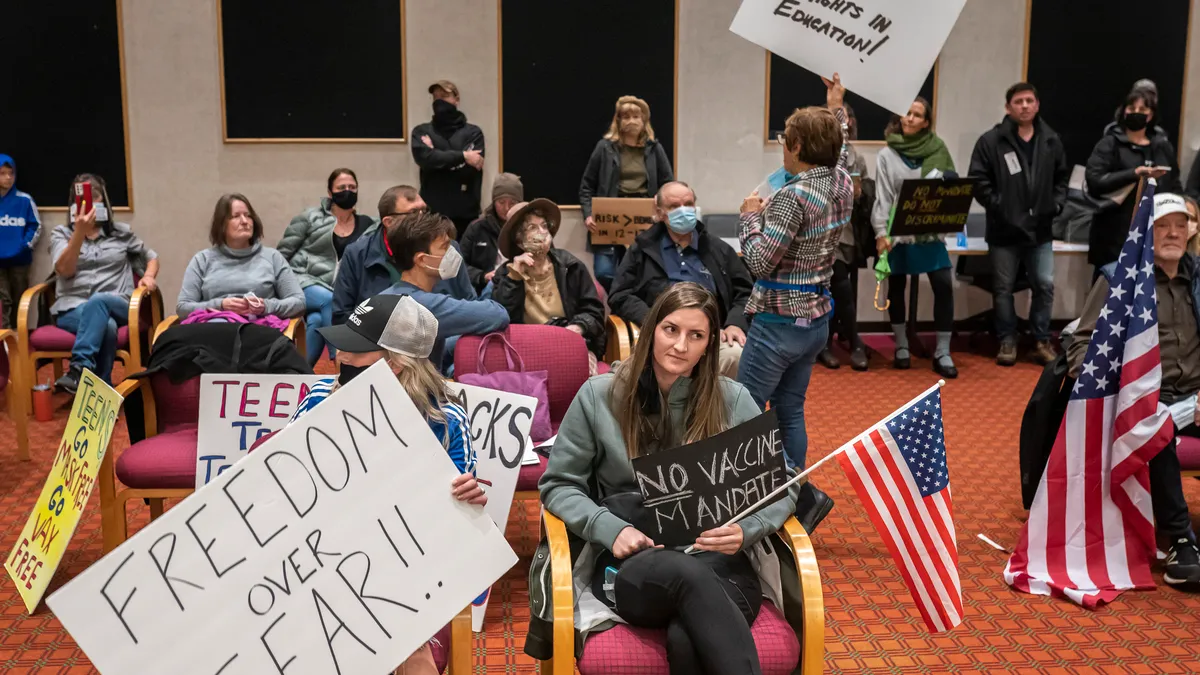Dive Brief:
- Soviet advances with Sputnik prompted a burst of investment in science education in the 1950s, and those who see Trump’s presidency as a threat to democracy say this election should do the same for civics education.
- The Century Foundation Senior Fellow Richard Kahlenberg and Boston University School of Education Senior Research Scholar Clifford Janey write for The Atlantic that today’s schools are failing to make students reflective citizens through the explicit curriculum, in part because of a laser focus on “college and career.”
- The “implicit curriculum” has also sidelined democracy, Kahlenberg and Janey write, as parent and teacher voices are ignored in school operations, teacher unions are cast aside in the rise of charters, and elected school boards are made irrelevant by state takeovers.
Dive Insight:
Chinese leaders have been pointing to Trump as an example of the dangers of democracy for months. This election has created particular soul-searching among educators in light of the clear divides between voting patterns of those with and without a college education. The possibility of a renewed focus on civics education warrants consideration at the school and district level.
Like other non-tested subjects in the era of test-based accountability, the importance of civics education has gotten less attention. With the Every Student Succeeds Act’s focus on educating the whole child, perhaps states will make room for a focus on preparing students to be civically engaged and informed. Young people routinely do not vote in as large of numbers as their grandparents. If they graduate high school fully understanding their responsibilities in a democracy and what is at stake, maybe one day that won’t be true.













